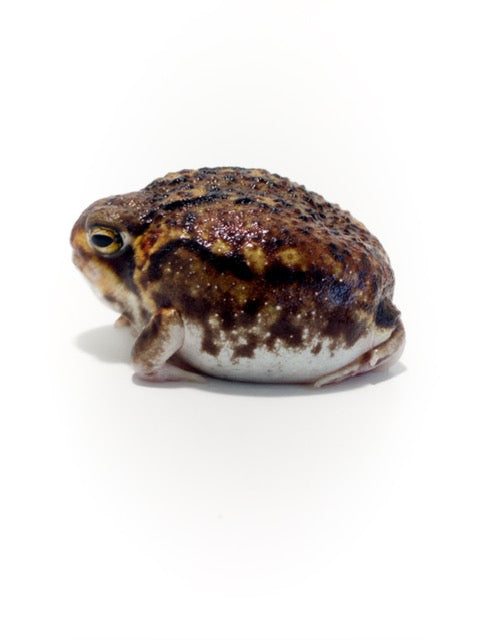Discover Rare Rain Frog for Sale: Raise Your Amphibian Collection Today!
Discover Rare Rain Frog for Sale: Raise Your Amphibian Collection Today!
Blog Article
Common Health Issues in Reptiles: Signs And Symptoms and Solutions
In the complex world of reptile treatment, comprehending the common health issues that might impact these distinct animals is paramount in guaranteeing their well-being. From respiratory infections that can silently take hold to metabolic bone diseases that can cripple, reptiles are at risk to a variety of ailments that require eager monitoring and timely treatment. Whether it's grappling with parasitic invasions, navigating dehydration issues, or attending to skin disorders that manifest in refined methods, being in harmony with the signs and symptoms and geared up with the expertise of efficient options is important for any reptile owner. By diving further right into the nuances of these health issues and checking out the practical solutions offered, one can protect the wellness and vitality of these remarkable pets.
Respiratory Infections
Respiratory infections in reptiles can significantly impact their overall health and call for punctual focus from knowledgeable vets. These infections are frequently triggered by microorganisms, infections, or fungi and can show up through signs such as hissing, nasal discharge, open-mouth breathing, and lethargy. In reptiles, breathing infections can be particularly testing to diagnose and treat as a result of their special composition and physiology. Veterinarians typically rely on a mix of physical exams, analysis imaging, and research laboratory tests to accurately identify the underlying root cause of the infection.
Treatment for respiratory system infections in reptiles normally involves a mix of helpful treatment, such as keeping proper humidity degrees and temperature level slopes in the unit, along with targeted medicine to attend to the specific microorganism in charge of the infection. It is critical for reptile owners to check their animals closely for any kind of signs of breathing distress and look for vet care at the earliest indication of an issue. With timely treatment and appropriate therapy, numerous reptiles can recover completely from respiratory infections and resume regular tasks.

Metabolic Bone Condition
What variables add to the growth of Metabolic Bone Illness in reptiles?
Metabolic Bone Illness (MBD) in reptiles is primarily created by an absence of appropriate calcium, phosphorus, and vitamin D3 levels in their diet regimen. Furthermore, insufficient direct exposure to UVB light stops reptiles from manufacturing vitamin D3, which is crucial for calcium absorption and bone wellness.
Various other contributing aspects to MBD include inappropriate temperature slopes within the reptile's environment, bring about decreased metabolic process and impaired calcium absorption. Insufficient moisture degrees can also impact a reptile's capacity to metabolize calcium effectively. Specific reptile species have specific nutritional demands that, if not satisfied, can enhance the likelihood of developing MBD. Routine vet examinations, proper husbandry techniques, and a well balanced diet plan are important to avoid Metabolic Bone Disease in reptiles.
Parasitic Problems
Parasitic invasions present a considerable health danger to reptiles, impacting their general health and needing timely vet attention. Reptiles can be influenced by numerous parasites, consisting of mites, ticks, inner worms, and protozoa. These bloodsuckers can create a range of symptoms, such as weight management, lethargy, skin irritation, diarrhea, and even fatality if left unattended.
One common bloodsucker found in reptiles is the mite, which can trigger skin tension, irritation, and anemia. Ticks are one more exterior parasite that can transfer conditions and trigger discomfort to the reptile. Internal bloodsuckers like worms and protozoa can bring about gastrointestinal problems, poor nutrition, and deteriorate the reptile's body immune system.
To detect a parasitic problem, a vet may do fecal tests, skin scrapings, or blood tests. Therapy often entails deworming medications, antiparasitic baths, or in extreme instances, hospitalization. Preventative steps such as regular veterinary check-ups, proper hygiene, and quarantine procedures for new reptiles can help lessen the risk of parasitical infestations and make certain the well-being of reptile pet dogs.
Dehydration and Hydration Issues
Dehydration in reptiles can considerably affect their health and well-being, demanding timely intervention and appropriate hydration administration. If left unattended, dehydration can lead to significant health problems and also be fatal to the reptile.
To stop dehydration, reptile proprietors must guarantee that their animals have accessibility to clean water in any way times. The water dish must be large enough for the reptile to take in if required, particularly for types that absorb water with their skin. Additionally, keeping appropriate humidity levels in the reptile's unit and providing normal baths can assist prevent dehydration.
In instances of dehydration, it is critical to seek vet care immediately. A veterinarian may carry out liquids either by mouth or through shots to rehydrate the reptile. It is crucial to resolve the underlying root cause of dehydration to protect against recurrence and make certain the reptile's overall wellness.
Skin Disorders

Final Thought

Respiratory system infections in reptiles can substantially affect their overall wellness and need prompt focus from knowledgeable vets (rain frog for sale). Preventative steps such as normal vet check-ups, correct hygiene, and quarantine procedures for brand-new reptiles can aid lessen the risk of parasitic invasions and ensure the health of reptile pets
If left untreated, dehydration content can lead to significant health and wellness issues and even be deadly to the reptile.
Consistently examining your reptile for any type of modifications in skin appearance, color, or texture can assist in early detection and therapy of skin ailments, promoting the overall health and linked here wellness of your flaky buddy. - rain frog for sale
In verdict, reptiles are vulnerable to different health concerns such as breathing infections, metabolic bone illness, parasitic infestations, dehydration, and skin ailments.
Report this page